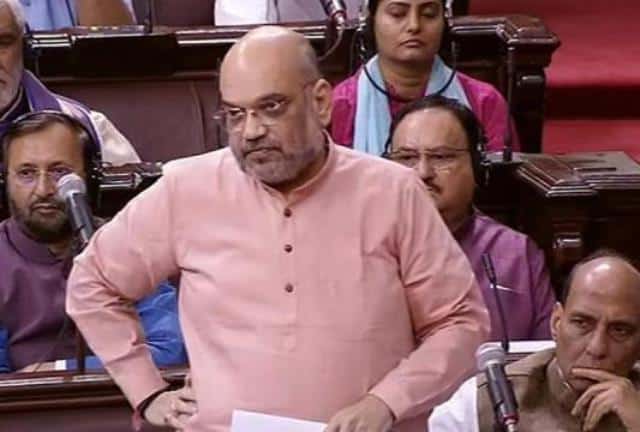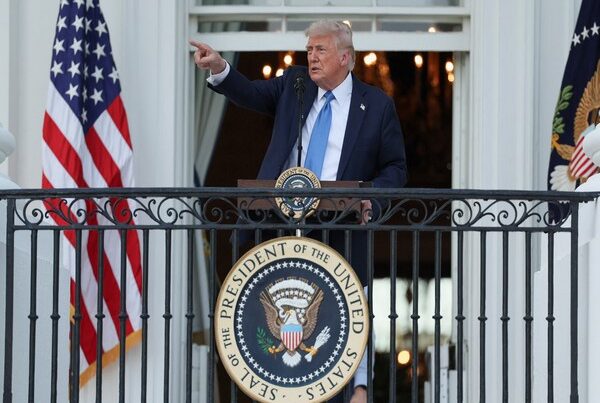
Is Modi Govt Dishing Out Legislative Bills Like Pizzas?
When India replicated the Westminster model and introduced the system of Parliamentary standing committees in the early nineties, the basic purpose was to ensure an in-depth scrutiny of proposed laws and budgetary proposals as it was felt that these were often not discussed at length in Parliament due to paucity of time.
A conscious decision was taken to keep the press and public out of these committee meetings so that members were not obliged to take a partisan stand which is the case when legislation is debated on the floor of the House. A free and frank discussion, it was felt, allowed MPs to offer constructive suggestions which would help strengthen and improve a particular legislation.
This system has worked so far. But the incumbent Modi government has been particularly reluctant to refer legislative Bills for scrutiny to Parliamentary committees. The number of Bills which were sent to committees for detailed deliberations dropped to 26% during Modi’s first term. In contrast, the figures for the earlier two Lok Sabhas was a healthy 60 and 71%. The Modi government is yet to open its account in the ongoing Parliament session.
A defanged and divided opposition has looked on helplessly as the Modi government ensured the passage of 20-odd Bills in the first session of the new Lok Sabha without sending even a single one to a Parliamentary committee. These include the amendments to the Right to Information (Amendment) Bill, the legislation criminalising triple talaq and the Unlawful Activities (Prevention) Amendment Bill to name a few.
The opposition has registered its protest but these have been ignored by an emboldened Modi government which has used its numerical strength in the Lok Sabha to push ahead with its legislative business.
Realizing that the opposition does not have the numbers or the will to challenge it, the Modi government unilaterally extended the Parliament session dusted up all its old Bills and rushed ahead with their passage. Brushing aside the opposition’s objections, Bharatiya Janata Party leaders maintained that the Bills which had been tabled for passage were not new but those which had been pending since the last Lok Sabha.
Unlike his predecessors, Prime Minister Narendra Modi is particularly averse to referring important Bills to Parliamentary committees. The showman that he is, the Prime Minister wants to set a record for the most productive Parliament session. Second, he wants to take advantage of the disarray in the opposition ranks to literally bulldoze legislation through Parliament. More importantly, Modi does not want any hurdles which can delay the passage of Bills.
Past experience shows that scrutiny by a Parliamentary committee is a time-consuming process. This can impact decision-making as opposition leaders, who head these committees, use it as a political tool by prolonging the deliberations. This is exactly what happened when the Manmohan Singh government was in power. Two of its flagship legislations- the Right to Food Bill and the Land Acquisition Bill – were deliberately delayed by the Parliamentary committees then headed by BJP leaders. Since the reports of the committees were submitted virtually towards the end of the government’s tenure, the Centre did not have sufficient time to implement the legislation and take electoral advantage of its “pro-poor” programmes.
Clearly, Modi wants to avoid a similar situation. Not only is he intent on making a big splash by ensuring the smooth functioning of Parliament, the Prime Minister does not want any roadblocks in the implementation of his government’s agenda which can damage his personal image as a decisive leader. More importantly, Modi wants to use the session to remind the opposition about its diminished strength and the government’s massive majority in the Lok Sabha. Unlike the past, no effort is now made to reach out across the political aisle and establish a working relationship with the opposition. The divide is all too clear as the BJP believes dialogue with its opponents is unnecessary.
On its part, an enfeebled has objected to the government’s attitude. It has accused Modi and Union home minister Amit Shah of showing scant regard for Parliament and treating it like the Gujarat assembly where the Modi-Shah duo had acquired the reputation of pushing through the government’s legislative business without adequate debate. But to little avail.
Besides the fact that the opposition is in a hopeless minority in the Lok Sabha, it is also a divided house, having also lost the edge it enjoyed in the Rajya Sabha in the Modi government’s first term when it had the numerical strength to challenge the treasury. The ruling alliance has since bridged the gap and is now close to a majority in the Upper House following a series of defections from the opposition ranks. Former Prime Minister Chandrashekhar’s son Neeraj Shekhar, Congress leader Sanjay Sinh and four members of the Telugu Desam Party have switched loyalties to the BJP, swelling its tally.
At the same time, the BJP has succeeded in driving a wedge in the opposition thanks to some deft floor management. This was evident during the voting on the triple talaq Bill when the BJP managed to get the support of the Biju Janata Dal while made sure the Bahujan Samaj Party, the People’s Democratic Party, YSR Congress, the Nationalist Congress Party and the Janata Dal (U) were not present during the vote.
From all accounts, the pattern set in the first session of the BJP government’s second term will become the norm. It is clear that the future of Parliamentary democracy is in peril as Modi has made it known that he does not like being questioned or opposed.



